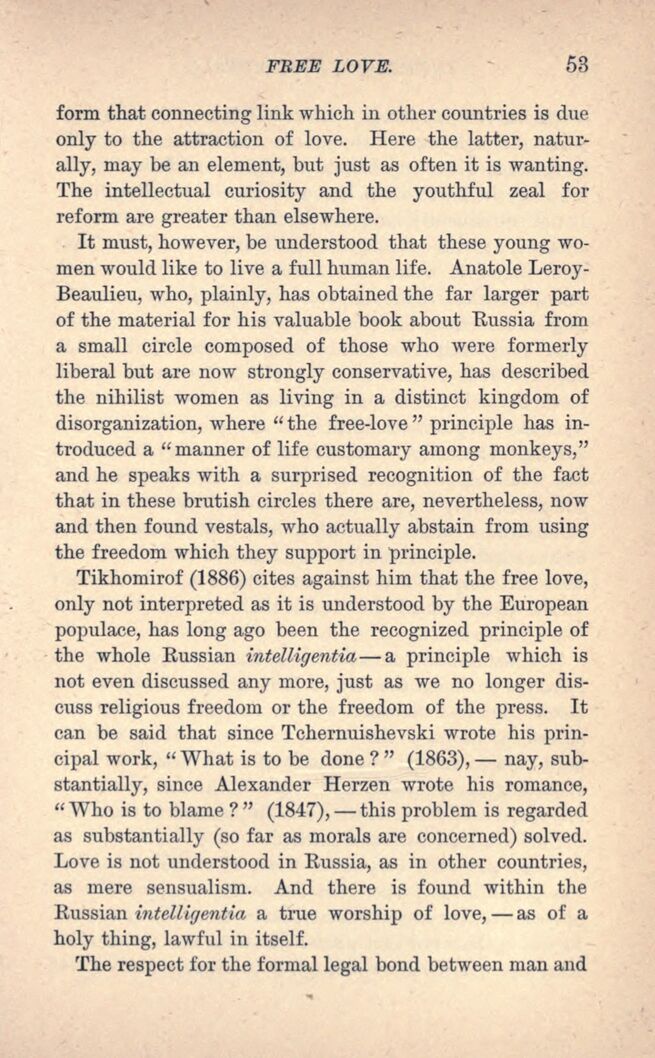
Full resolution (JPEG) - On this page / på denna sida - IV

<< prev. page << föreg. sida << >> nästa sida >> next page >>
Below is the raw OCR text
from the above scanned image.
Do you see an error? Proofread the page now!
Här nedan syns maskintolkade texten från faksimilbilden ovan.
Ser du något fel? Korrekturläs sidan nu!
This page has been proofread at least once.
(diff)
(history)
Denna sida har korrekturlästs minst en gång.
(skillnad)
(historik)
form that connecting link which in other countries is due
only to the attraction of love. Here the latter,
naturally, may be an element, but just as often it is wanting.
The intellectual curiosity and the youthful zeal for
reform are greater than elsewhere.
It must, however, be understood that these young
women would like to live a full human life. Anatole
Leroy-Beaulieu, who, plainly, has obtained the far larger part
of the material for his valuable book about Russia from
a small circle composed of those who were formerly
liberal but are now strongly conservative, has described
the nihilist women as living in a distinct kingdom of
disorganization, where “the free-love” principle has
introduced a “ manner of life customary among monkeys,”
and he speaks with a surprised recognition of the fact
that in these brutish circles there are, nevertheless, now
and then found vestals, who actually abstain from using
the freedom which they support in principle.
Tikhomirof (1886) cites against him that the free love,
only not interpreted as it is understood by the European
populace, has long ago been the recognized principle of
the whole Russian intelligentia—a principle which is
not even discussed any more, just as we no longer
discuss religious freedom or the freedom of the press. It
can be said that since Tchernuishevski wrote his
principal work, “What is to be done?” (1863),—nay,
substantially, since Alexander Herzen wrote his romance,
“Who is to blame?” (1847),—this problem is regarded
as substantially (so far as morals are concerned) solved.
Love is not understood in Russia, as in other countries,
as mere sensualism. And there is found within the
Russian intelligentia a true worship of love,—as of a
holy thing, lawful in itself.
The respect for the formal legal bond between man and
<< prev. page << föreg. sida << >> nästa sida >> next page >>